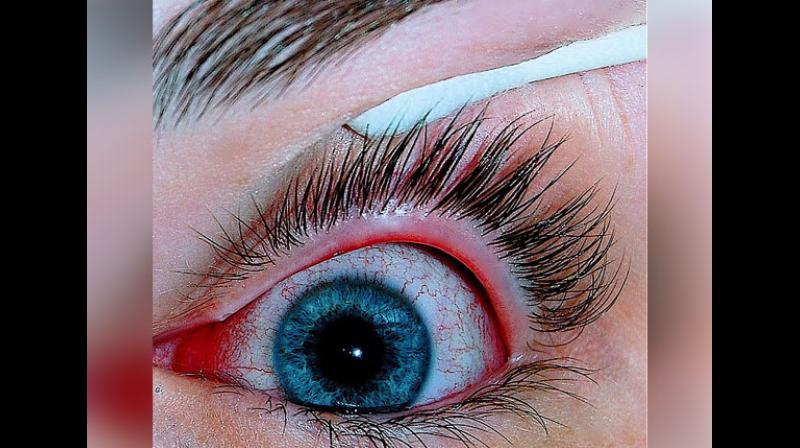Cure for dry eyes can be made from human antibodies
Antibody-based eye drop may treat dry eye disease: Study.

Washington: Researchers found that patients suffering from dry eye can be cured with a new eye drop made from human antibodies.
Researchers at the University of Illinois at Chicago are the first to identify the presence of a specific type of antibody, called anti-citrullinated protein autoantibodies, or ACPAs, in human tear fluid.
They are also the first to demonstrate that patients with dry eye disease experienced reduced signs and symptoms of the condition in response to a new eye drop treatment -- made from human pooled antibodies -- that targets ACPAs.
The findings from their early-stage clinical trial are reported in the journal -- The Ocular Surface.
Dry eye disease is caused by abnormalities in the tear fluid and results in dry areas over the cornea, the transparent outer layer of the eye, which can lead to disabling eye pain and sensitivity to light in severe cases.
"The burden of autoimmune dry eye is much greater than just having an occasional feeling of dryness," said Dr Sandeep Jain, senior author of the study and UIC professor of ophthalmology and visual sciences at the College of Medicine.
"It can severely compromise the quality of life to the point of disability and can compromise a person's vision," added Dr Jain.
In previous research, Jain and his colleagues discovered that strands of DNA extrude from neutrophils, a type of white blood cell, to form webs on the surface of eyes affected by severe dry eye disease and cause inflammation.
In the new study, the researchers identified ACPAs as another cause of eye inflammation that also contributes to the development of these webs, which Jain calls "a vicious cycle of inflammation.
The new eye drops treat dry eye disease by knocking the immune system out of this cycle, at least partially.
The drops are formulated using pooled antibodies -- which are made from immune globulins processed from the donated blood of thousands of individuals, all containing varied types of antibodies -- that counteract the negative effects of ACPAs.
The phase I/II drug trial compared the antibody-based eye drops with eye drops without the antibodies.
"There are currently only two approved drugs to treat dry eye, and they don't work for everyone, especially those with severe disease, so having a new drug that can treat the disease by targeting a different mechanism, in this case, autoimmunity, is very important," Jain said.
The researchers evaluated patients' symptoms through questionnaires and found that people using antibody-based eye drops had a statistically significant and clinically meaningful reduction in corneal damage at eight weeks compared with the control group.

